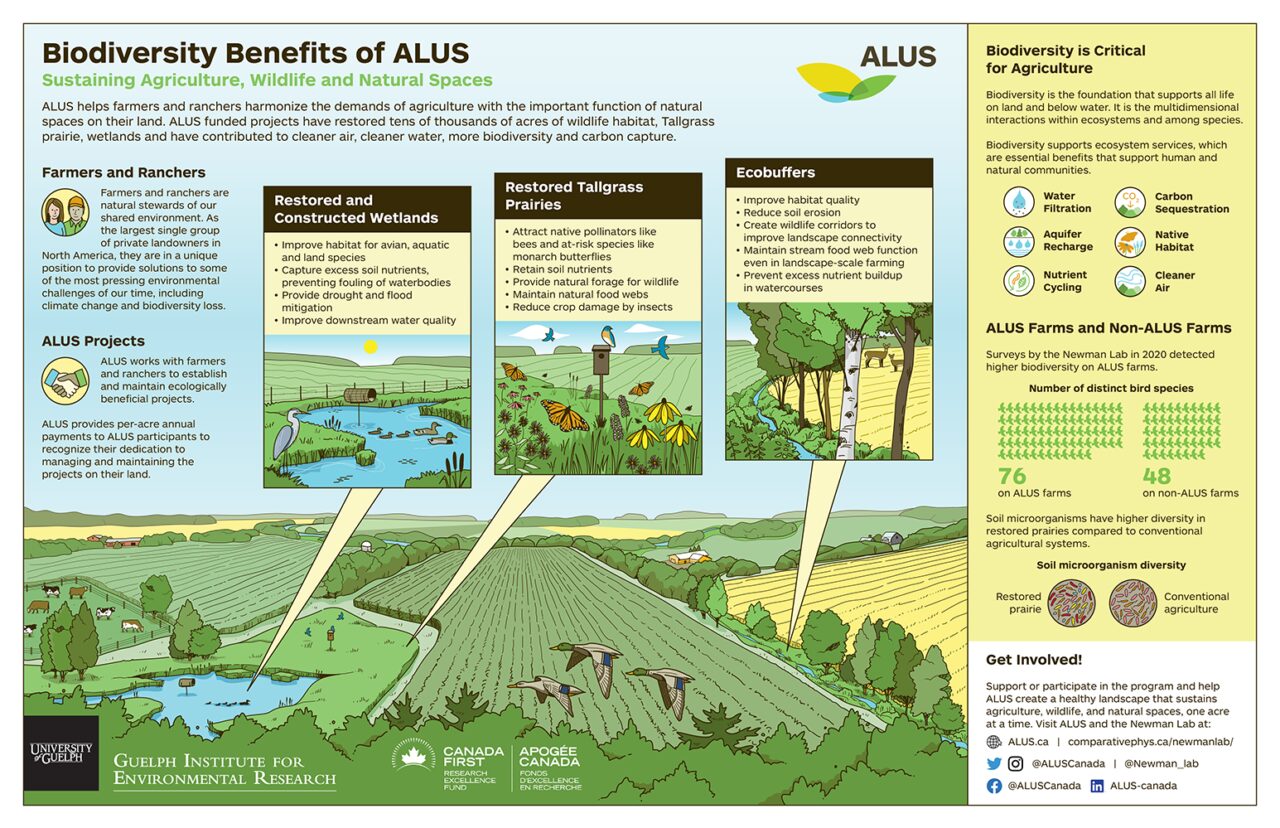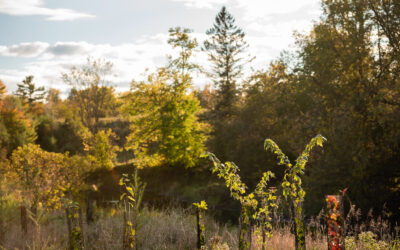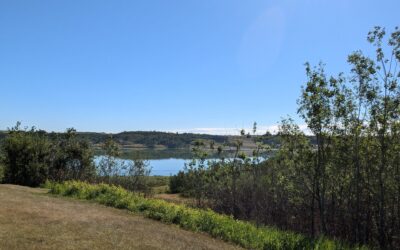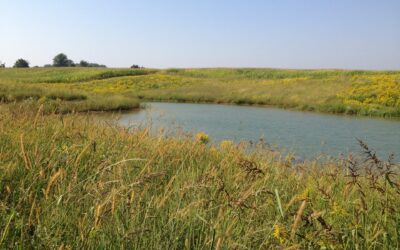ALUS works to support and benefit biodiversity in the communities it operates in, collaborating with researchers to verify the outcomes.

Biodiversity is the multitude of living species that we find around us, animals, plants, fungi and microorganisms — the many things that comprise and share our ecosystems.
The diverse biology of these beings comprises a complex web of interdependent relationships, one living thing supplying habitat or food for another and so on. This is sometimes called the web of life or ecosystems.
ALUS Impacts
ALUS works with farmers and ranchers to create and maintain projects that increase biodiversity and provide habitat for a variety of species. These can include birds, insects, mammals, plant species, soil microorganisms, and others, including species at risk like swift fox or bobolink
ALUS projects support biodiversity by fostering the relationship between agricultural land and the ecosystems those lands exist within. ALUS achieves these outcomes by partnering with farmers and ranchers who use parcels of their lands differently, land that might otherwise be less productive. By working with ALUS, farmers and ranchers are empowered to make choices about the use of their land, supporting biodiversity and the co-benefits that support their agricultural work.
Farmers and Ranchers Making a Difference
Say a farmer wants to introduce a native tallgrass prairie onto a flood-prone part of their land. That, in turn, supports native pollinators that can help crop pollination and bring other species to the land, like insects that might prey on pests. So, the prairie benefits the farmer and the environment, bringing more species and creating habitat for them, improving biodiversity.
Biodiversity helps ensure that nature is rich and bountiful, supporting human communities with food, clean water and other vital ecosystem services.
Through it’s many research partnerships, ALUS works to verify and provide hard data to support the efficacy of its landscape work. The infographic below is one example of outcomes studied and reported by field researchers, in this case Dr. Amy Newman, Newman Labs, and her team at the University of Guelph.
ALUS to deliver nature-positive benefits to rural communities with continued financial support from TD Bank Group
The 2024-25 grant from TD marks the fifth year of funding the Bank has provided to ALUS and will support adding another 115 new acres of nature to the working landscape in Manitoba, Ontario and Québec. Toronto, ON, December 17, 2024 – Supported by TD, through its...
ALUS is accelerating carbon quantification capabilities with support of Cisco Foundation
December 9th, 2024, Toronto, Ontario --- Today, ALUS announced that it received grant support from Cisco Foundation, which will strengthen its carbon quantification capabilities. The grant will enable ALUS to develop and test three innovative technologies that use AI...
On-farm climate resilience you can see and touch
Definity Insurance tours ALUS farms in Ontario to learn how farmers are using nature-based climate solutions to protect their operations from severe weather.Definity Financial Corporation is committed to building community resilience. As the parent company to...




